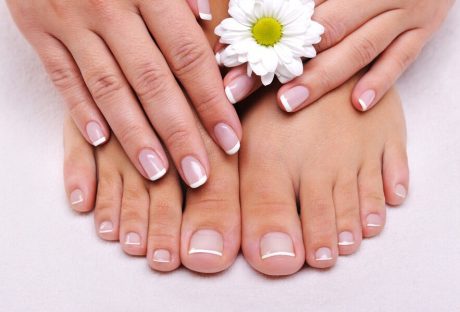The human feet are a masterpiece of engineering and a work of art that enables you to stand for long hours, walk for long distances, hop, skip and jump and follow the activities that your heart wants to follow.
Just like a sound foundation ensures that a building stands upright forever; having strong feet ensure a longer, happier, and healthier life.
However, we often tend to take our feet for granted. Even the best of athletes focus upon building muscles legs, arms, calves, abs, and the rest of the body; but hardly anyone pays attention to the feet.
We seem to forget the fact that our feet are involved in almost every activity we do. They provide us the support and balance in almost all our bodily movements. Lack of strength in our feet is therefore bound to compromise our ability to do any physical activity; be it walking, running, jump, high-intensity sporting event, or even standing!
The Science Behind the Structure of the Feet
Before we embark upon knowing the ways about how to ensure that your feet stronger, it is important to understand the three most important aspects that dictate how strong or weak your feet are. These are –
1.The Soles
Most of us who wear shoes all day long have very soft and tender feet soles. You would have noticed that those who spend time barefooted, have thicker soles. This makes them stronger and firmer and they are able to withstand superficial injuries as well as normal wear and tear quite easily.
2. The Joints, Muscles, And Tendrils Of The Feet
The human foot is a very complex structure. It is made of 33 joints, 26 bones, and almost 100 ligaments! They all are designed to function in a manner that the foot can take the weight of the entire body and spread it evenly to maintain balance in all types of movement.
Strong feet not only help an efficient movement but also help in improving the posture. They also help in avoiding spinal injuries by efficiently maintaining our balance, thus cushioning the effect of any jerks.
3. Arches in the Feet
The arches in our feet help in an efficient rolling action, which maintains the balance during movement. Sometimes the arches are not well developed, giving rise to a situation commonly known as flat feet. When someone is flat-footed, it is difficult to maintain good rolling action which in turn leads to a lower range of action consequently lowering strength as well as speed.
How to Make Your Feet Stronger
Most of us are blessed with well-shaped feet that can take the rigors of our daily life and all the activities we undertake, but often we tend to neglect our feet and suffer the consequences by way of loss of strength as well as suffer from early aging symptoms. It is but natural that if the feet are weak, a person’s mobility will be restricted and he will do fewer activities. This would have an adverse effect on overall health. On the other hand, if a person is active, some of the drawbacks of being flat-footed can be overcome.
Here are some of the ways of how to make your feet stronger –
Exercises
By consciously spending some time doing the following specific exercises is the best way to make your feet stronger –
- Caterpillar Type Movement – (Benefit– Strengthens the arches)
Lie down on your back, draw your knees and place the feet flat on the floor about 8 inches away from each other. Then lift the arches of both the feet and simultaneously pull your toes backward toward the heels. Keep this position for a few seconds and bring back the arches and toe to their original position. Then do the reverse- arches up and heels toward the toes. Repeat this set three to five times.
- Windshield Wiper Movement – (Benefit– Strengthens the entire foot and improves ankle stability)
In continuation with the caterpillar type movement exercise listed above, lift the toes, keeping the feet flexed while only the heels are touching the floor. Then slowly roll your feet to the ground and lift the heels keeping only your toes are on the ground. Repeat 8-10 times.
- Wing and Sickle Movement – (Benefit – Strengthens the ankles and promotes correct posture)
Continue lying down as above and roll your feet inward along the inner edge in line with the toe, then roll outwards in line with a small finger. Do this 3-5 times.
- The Round Knot Movement – (Benefit – Stretches the ligaments and aids foot alignment)
Sit upright on the floor and extend your legs in front. Bend the left knee towards yourself and interlace the fingertips of the right hand with the left toes. Inch them forward and backward giving the foot a stretch. Repeat 6-8 times. Then do the same with the other foot.
Toughening up Your Feet
There are many other ways of how to make your feet stronger.
- Stand More Often – Our daily life is mostly based on sitting. Be it office or home, we spend the day sitting. Consciously standing more often would help strengthen and stretch the muscles of the feet.
- Jogging/Walking on the Sand – If you have access to a sandy beach, try walking or running gently on the sand. This would increase the flexibility and strength in your feet and exercise the arch.
Read also: Why Jumping on Trampolines is More Beneficial than Running or Jogging?
- Walking Barefoot– Crazy as it may appear, walking on smooth rocks can do wonders for your feet’ strength. Walking barefoot on grass is equally effective as it toughens up the feet soles and makes the feet stronger.
Using Shoes With Insoles
Insoles were traditionally used for making short people appear taller. These days however they are scientifically designed for multiple functions and assist in skiing, biking, golf, etc.
Using best insoles for flat feet ensures not only physical comfort but also improves efficiency and performance in all your multifarious activities.
Even those who suffer from other ailments like Morton’s Neuroma and plantar fasciitis can benefit by using the best insoles for flat feet and carry out all activities normally.
Go On, Focus On Your Feet!
If you want to enhance your control, balance, and power, it is important to start focusing on strengthening your feet.
It will also make you agile with better control of movement. Following these simple tips in your daily routine can put you on the way to balanced, more powerful, and stronger feet in a matter of a few days!
Read also: Get up and Workout! Things to Consider

























